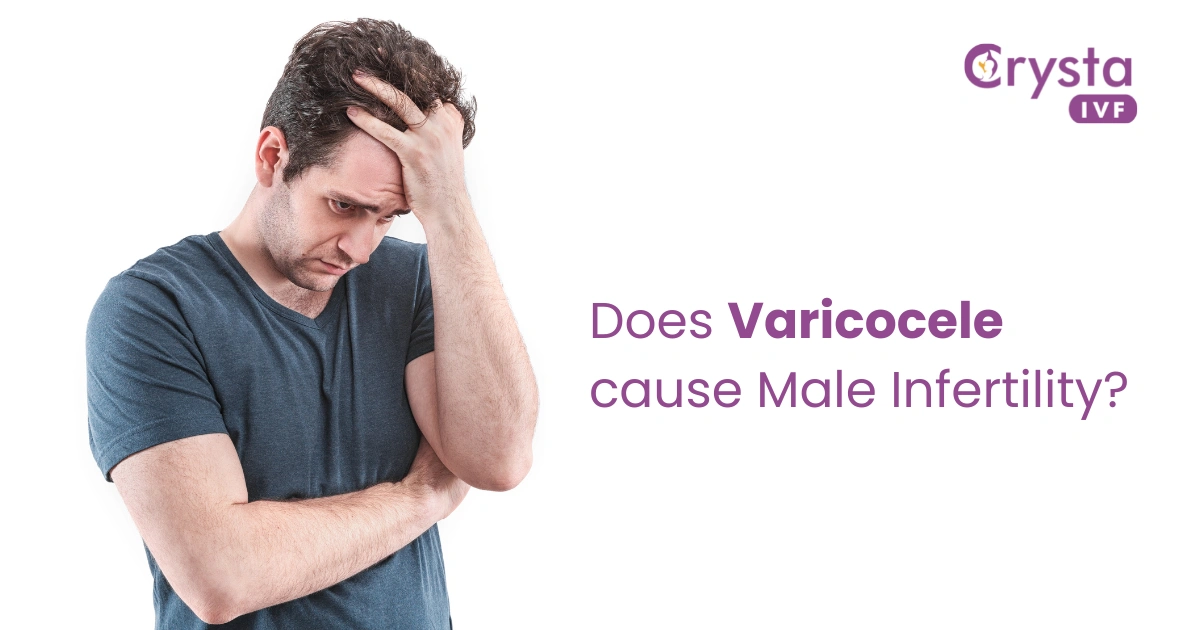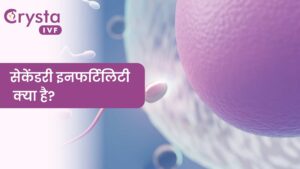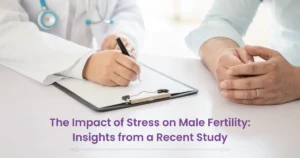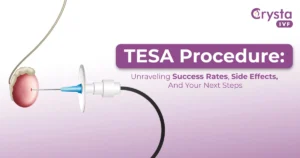Contrary to popular belief, varicocele is a severe health issue most people are unaware of. However, with the growing population, the need to understand the term has become quite vital. As varicocele is a condition known to be common and is found in 15% of the adult male population and approximately 35% of the men with primary infertility issues. Ideally, they are more common in males falling in the age group between 15 and 25.
Though varicoceles are similar to varicose veins, they still develop around the testicles rather than the legs. According to research, they do not cause serious health problems in men but can impact male infertility. Varicoceles generally develop during puberty and are commonly located on the left side of the scrotum. Therefore, this article will look at the symptoms, diagnosis, and treatment to give you a detailed analysis of varicocele. But let us first anticipate what varicocele is and how it leads to varicocele infertility.
Varicocele: Is it a critical health issue?
The scrotum is identified as a skin-covered sac that holds your testicles. Not only that, but it also contains the arteries and veins that deliver blood to the reproductive glands. If a vein abnormality occurs in a scrotum, it forms a varicocele ( varicocele is an enlargement of the veins within the scrotum).
Does varicocele cause male infertility?
Some research says that varicocele can cause male infertility, but they do not completely suspect why that may be. Some experts believe that the quality of sperm reduces because the varicocele lowers the blood supply to the affected testicle. In contrast, others believe that the buildup of blood in the scrotum advances testicle temperature, which affects sperm production.
To summarize, varicocele can cause male infertility and prevent a man from conceiving with his female partner if the symptoms are not identified as soon as possible.

Varicocele Symptoms
In usual circumstances, a varicocele occurs on the left side of the scrotum and shows no signs; still, the most possible symptoms of varicocele are:
A mass in the scrotum
If a varicocele is large enough, a mass like a “bag of worms” will appear above the testicle. While a varicocele is almost impossible to notice if it is small, it is still palpable.
Pain
Standing or late in the day will cause dull, aching pain or discomfort, though lying down will often relieve the pain.
Infertility
While it is clear that varicocele does not always result in male infertility, it is estimated that 10% to 20% of men diagnosed with a varicocele have difficulties conceiving. Furthermore, 40% of all infertile men are found to be suffering from varicocele-related infertility.
Differently sized testicles
The affected testicle will appear smaller than the other testicles.
The risk associated with varicocele
A varicocele impairs your body’s ability to regulate the temperature of your testicles and leads to the following complications such as:
Oxidative stress
oxidative stress results from an imbalance between the production and accumulation of oxygen-reactive species in cells and tissues. It can lead to fatigue, memory loss, brain fog; reduced eyesight; wrinkles, and grey hair.
A buildup of toxins
Varicocele can lead to the formation of an excessive amount of toxins in one’s body and can prevent the production of hemoglobin in your blood.
Infertility
While it is clear that varicocele does not always result in male infertility, it is estimated that 10% to 20% of men diagnosed with a varicocele have difficulties conceiving. Furthermore, 40% of all infertile men are found to be suffering from varicocele-related infertility.
Poor testicular health
For boys going through puberty, a varicocele may inhibit testicle growth, hormone production, and other significant factors related to the health and function of the testicle. In men, a varicocele leads to gradual shrinkage due to tissue loss.
Thus, varicocele not only causes varicocele infertility, but it is also one of the causes of reproductive health complications in men. To fight this condition, getting diagnosed at the right time is necessary.
Diagnosis: What is the right way to find out you are dealing with varicocele disease?
Physical exam
Your healthcare provider will diagnose a varicocele condition with the help of a visual inspection of the scrotum and manually through touch, whether you are lying down or standing up. If you’re standing, your doctor may advise you to take a deep breath, hold it, and bear down; this is similar to the pressure experienced during a bowel movement, and it can help your doctor examine a varicocele.
Ultrasound
Your doctor might recommend an ultrasound exam as it uses high-frequency sound waves to create images of the structures inside your body. These images are used to –
- Confirm the presence of varicocele.
- Locate a lesion or other factors that obstruct blood flow.
- It Helps to eliminate signs and symptoms of other conditions.
After your healthcare provider has carefully examined your health condition and determined that you are diagnosed with varicocele-related infertility, you must seek an effective treatment by consulting a fertility expert.
Treatments that help to overcome the complications of varicocele infertility
Teenagers or young adults who are not seeking fertility treatment can go for a regular health checkup. However, surgery might be recommended in the following situations such as:
- Severe pain that is not cured by pain medication
- A testicle that shows delayed development
- Lower sperm count or other sperm irregularities (generally tested in the testicles)
If you are planning for a baby suffering from varicocele infertility, your doctor will monitor your health conditions and advise you to go for an IVF treatment.
Learn More: Importance of Semen Analysis in Male Infertility Treatment
In-vitro fertilization, the popular form of ART, is the most widely accepted fertility treatment, having changed the lives of millions of people for many years. The reproduction process in this treatment takes place outside of the human body, in a modern laboratory, where a mature egg fertilizes with the help of a sperm. Later, the embryo implants within the uterine lining of the woman, where it receives nourishment and develops from a fetus to a healthy baby.
Though IVF treatment is often regarded as a long-term and complicated process, it still ensures success more than any other infertility treatment. However, its success also depends on the panel of fertility experts and how prominently they treat you so that you can enjoy parenthood as other couples do.
Where to find a fertility expert?
After studying in detail, it is obvious that a man combating varicocele infertility can not conceive naturally with her partner. And to plan for a healthy baby to live their parenthood or to carry their baby in their arms, the only way is to go for an IVF treatment. Though the most popular, it is necessary and can only be performed under top IVF experts.
Fertility experts at the best IVF centre in Noida can help you to understand the complications of your reproductive health through a personalized approach where you can share all your doubts and be clear at the same time. After examining your health condition and potential fertility issues, such as varicocele infertility, the fertility experts will start planning for an IVF treatment so that your chances of conceiving can get strong again.
Also read: Which Doctor Should You Consult For Male Infertility?
If not treated, varicocele can become a serious problem and affect male fertility. To live a stress-free life and plan for a baby, learn to take small steps toward your reproductive health with the help of a fertility expert and reach your ultimate goal.




